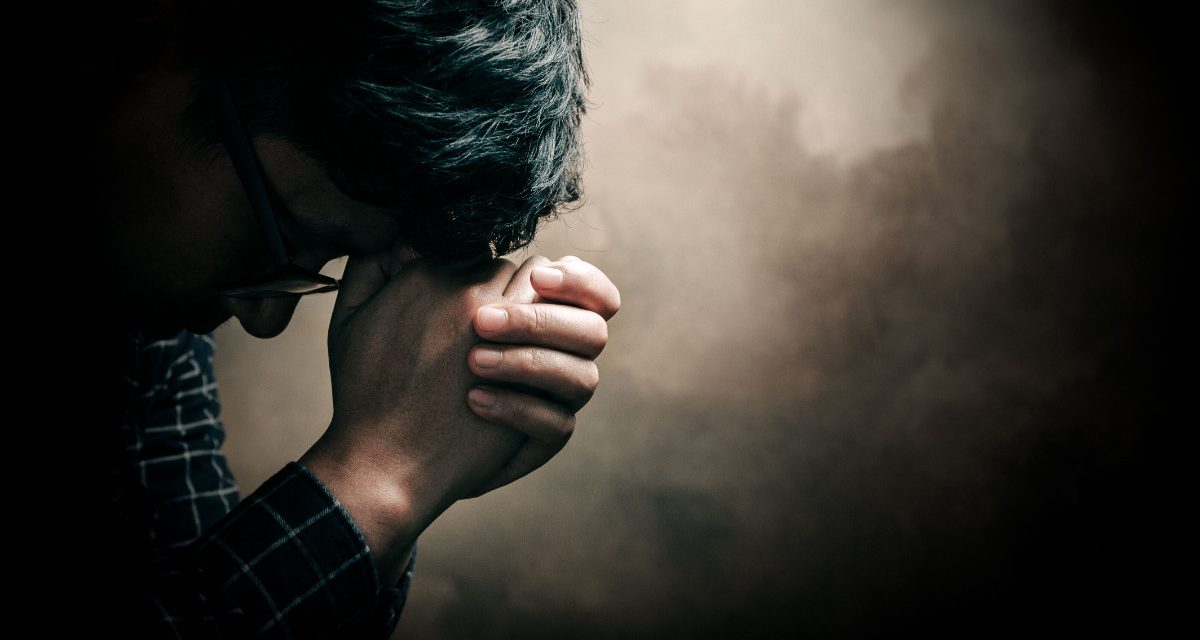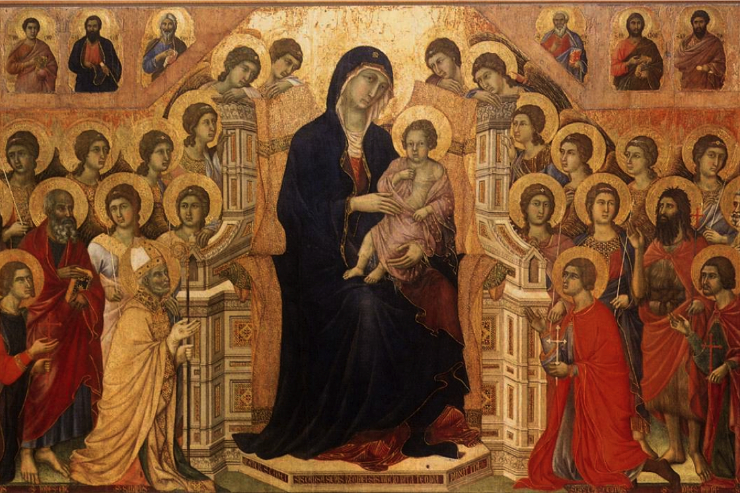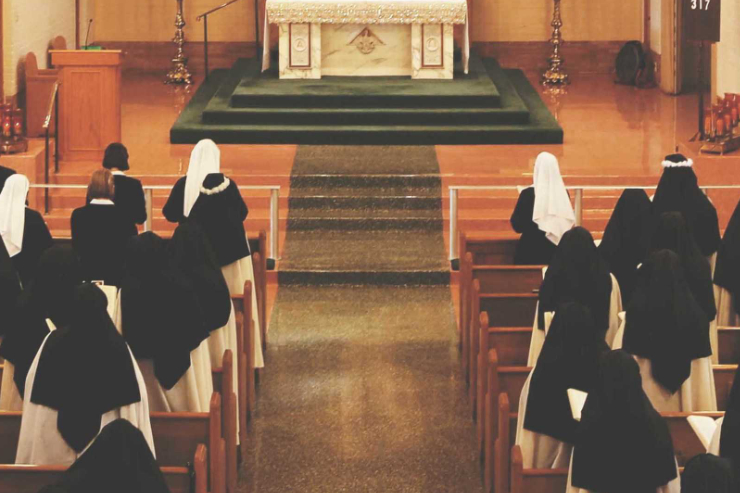Every single minute we spend with our knees bent and our heads bowed in prayer, we literally release ourselves from the bondage and burden of this earthly life. Thanks be to God.
This release is best described as a healing of anything that impedes our ability to love.
Think of what a gift prayer can be for the human soul. Do you want to experience peace in the midst of chaos, joy in the midst of adversity, patience in the midst of trial, and even love in the midst of rejection? Then become a person of deep, consistent prayer.
This does not mean all our earthly challenges go away; life’s challenges may well be part of God’s overall plan for our glorification, they may, in fact, be the very thing that drives us to prayer. Prayer opens us to the possibility of experiencing the larger reality of this life, which is to be freed and healed to love. From an eternal perspective, that is really all that matters.
But this statement might lead to a difficult question. If this is all true, why do we sometimes not feel any better after we’ve spent time in prayer? Why might we still feel the weight of the cares and the worries that often impose themselves on our minds? How is it that we occasionally still suffer some of the old regrets from our past mistakes or the burden of our fears about the future?
Or worse yet, why is it that for some, even after they pray, life’s succession of days, hours and minutes seems to drag on without any sense of enthusiasm, expectancy or purpose. Just what is it that seems to steal some people’s joy, peace, consolation and hope of a fuller life, despite their best efforts at prayer. After all, isn’t a full life exactly what scripture promised all of us?
“I came that they may have life, and have it abundantly.”
– John 10:10b
“Ask, and you will receive, that your joy may be full.”
– John 16:24b
So, what is it that is stealing our joy?
The answer is actually twofold. First, some people, even some with an active prayer life, simply fail to live life in the present moment. The reality of human existence is that all we ever have available to us is what is experienced in this very minute, right here, right now. The past, whether good or bad, can neither be changed nor relived. We must put it aside. We should never relive our regrets nor desire to re-experience our past glories or more desirable circumstances. So how does one do this?
We must focus on the present moment. It is all we truly have, and we should continually labor to live the present for all it is worth. Now it is true that we might need to repair some of the damage that may have occurred in our past lives, but this too is done in the here and now. Extend that apology, offer forgiveness where it is needed, bestow that gift of reconciliation and healing, and do it today.
As for the future, the fictional circumstances we sometimes live out in our thoughts, whether they are positive or negative, are simply not real today, so why do we live them today. When the circumstances of tomorrow do arrive, they will merely be the perpetually “present moment” we always experience in the here and now. Why not just await their arrival and then live them to the fullest in that moment? To help us with life’s struggles, God instituted what the late Father Jean-Pierre de Caussade, in one of his spiritual classics, called the Sacrament of the Present Moment. The present is the only place where life is truly lived.
The truth is that most people can handle pretty much anything in the present moment; it is dwelling on the past or our concerns about the future that can overwhelm so many of us.
Again, this is not to say that we should not attempt to mend the past or have plans for the future, only that we should never allow either the past or our plans or concerns about the future to negatively affect our experience of joy in the present moment. And just how do we do that? By living only in the present moment. If you need a little assistance, pray this way:
“Cast all your anxieties on him, for he cares about you.”
– 1 Peter 5:7
This is not some trite throwaway line from scripture. We really must stop for a minute, take time to reflect on this promise and then deliberately give our concerns over to the Lord.
And how about those poor souls who may still continue to experience even the present moment as a perpetual pain in their posterior (and we have all been there)? The issue may be that they are living even the present moment largely through their material nature; in other words, through their senses, thoughts and feelings. This is where all the chaos resides, but the experiences of these temporal elements are not reality.
The human person is both flesh and spirit, and scripture very specifically counsels us to live predominantly in our spirit.
“For those who live according to the flesh set their minds on the things of the flesh, but those who live according to the Spirit set their minds on the things of the Spirit.”
– Romans 8:5
“But you are not in the flesh, you are in the Spirit, if the Spirit of God really dwells in you.”
– Romans 8:9a
So, we must do two things to allow our prayers and our lives to center themselves in the Spirit. First, live out the present moment and only the present moment. The past, the future, and for that matter, even the present, all belong to Christ.
Then, in order to make the first principle possible, we must dwell predominantly within our spirit, not with the burdens of our material and temporal world. For, as difficult as these challenges may be for us at times, they are both temporary and temporal.
We can live in the Spirit by perpetually focusing on and desiring the things of the Spirit and distancing ourselves from the desires or concerns of the flesh. This approach to prayer requires the exercise of real faith, which is confidence in God; real hope, which continues to desire what we know will be a brighter day; and real love, which always begins with the belief that God Loves us.
“We love, because he first loved us.”
– 1 John 4:19
Every session of prayer should begin with this thought embedded in our hearts.
The other encouraging part of prayer is that we know none of us is ever alone in this struggle; we always have each other to rely on as we continue our journey.
“You also must help us by prayer, so that many will give thanks on our behalf for the blessing granted us in answer to many prayers.”
– 2 Corinthians 1:11
God Bless
Copyright © by Mark Danis
Image credit: Copyright © Shutterstock
We strive to operate on a very small budget, but we need your help. Both one-time and monthly donations are welcome. Just $10 a month will help cover the cost of operating Integrated Catholic Life for one day! Please help us bring enriching and inspiring Catholic content to readers around the world by giving today. Thank you!
Please help spread the Gospel. Share this post with family and friends on Facebook and other social media.














